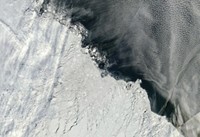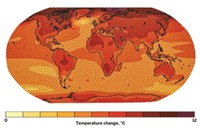Advertisement
Grab your lab coat. Let's get started
Welcome!
Welcome!
Create an account below to get 6 C&EN articles per month, receive newsletters and more - all free.
It seems this is your first time logging in online. Please enter the following information to continue.
As an ACS member you automatically get access to this site. All we need is few more details to create your reading experience.
Not you? Sign in with a different account.
Not you? Sign in with a different account.
ERROR 1
ERROR 1
ERROR 2
ERROR 2
ERROR 2
ERROR 2
ERROR 2
Password and Confirm password must match.
If you have an ACS member number, please enter it here so we can link this account to your membership. (optional)
ERROR 2
ACS values your privacy. By submitting your information, you are gaining access to C&EN and subscribing to our weekly newsletter. We use the information you provide to make your reading experience better, and we will never sell your data to third party members.
Environment
Climate-Change Risk Management Analyzed
by Cheryl Hogue
April 2, 2012
| A version of this story appeared in
Volume 90, Issue 14
Policies to avoid, prepare for, and recover from extreme weather and climate disasters such as floods and heat waves can reduce the impacts of these events, the Intergovernmental Panel on Climate Change says in a report released last week. “We know enough to make good decisions about managing the risks of climate-related disasters. Sometimes we take advantage of this knowledge, but many times we do not,” says Christopher B. Field of the Carnegie Institution for Science and cochair of the IPCC working group on impacts, adaptation, and vulnerability to climate. The report says managing the risks of extreme events is a way to advance adaptation to human-caused climate change. The report lays out likely impacts of climate change during the 21st century that policymakers can start preparing for now. For instance, the frequency of heavy rains or snowfalls is likely to increase, as is the amount of annual precipitation delivered during heavy rain- or snowfalls. Meanwhile, the report says droughts are projected to increase in intensity and duration in some regions of the world.





Join the conversation
Contact the reporter
Submit a Letter to the Editor for publication
Engage with us on Twitter